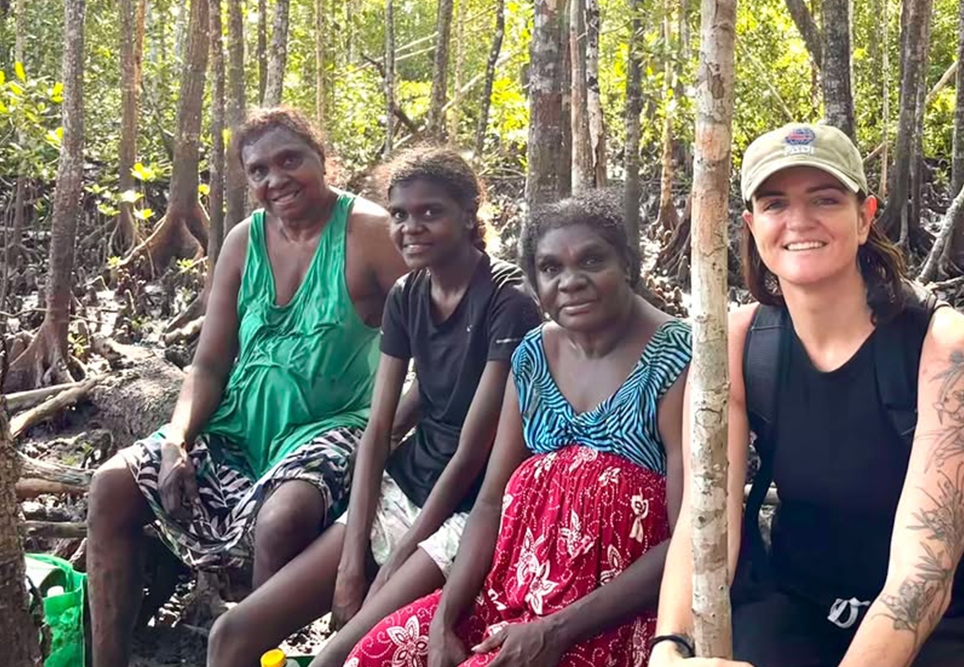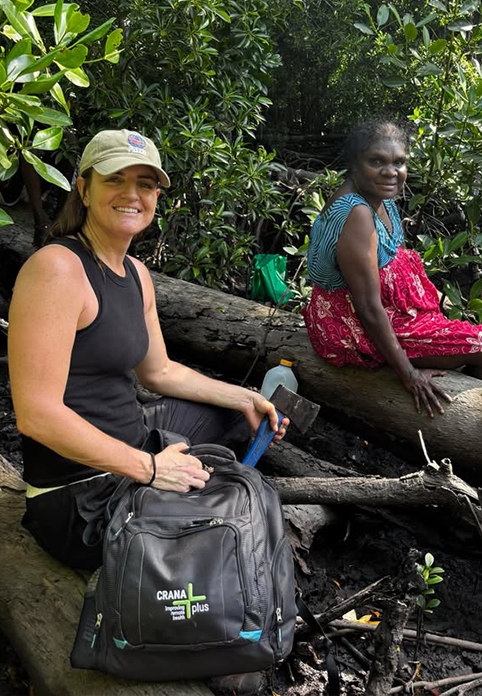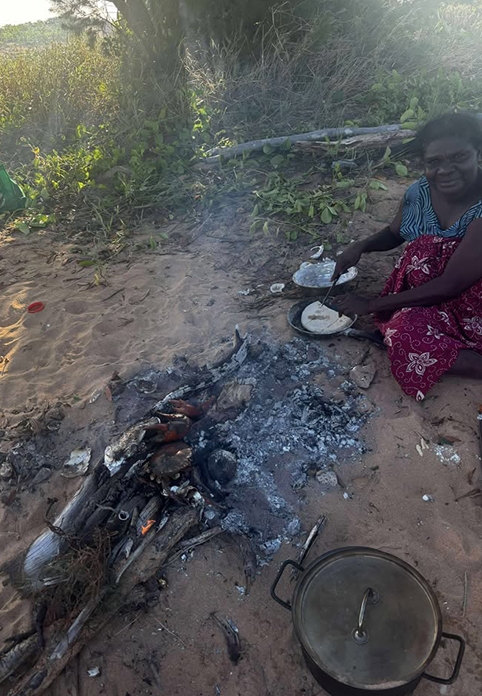This site may not work properly using older versions of Edge and Internet Explorer. You should upgrade your browser to the latest Chrome, Firefox, Edge, Safari, or any other modern browser of your choice. Click here for more information.
Your Stories
This is where we tell your stories, cover topical issues and promote meaningful initiatives.
Clare Burke - a midwife among the mangroves in Galiwin'ku
Clare Burke, an endorsed midwife and CRANAplus facilitator, has spent the past year working in the remote community of Galiwin’ku where she has been welcomed as family. She shares how deep connection has strengthened the care she provides women and babies.
Axe in hand, Clare climbs up and over mangroves on the hunt for mud crabs, longbums and mangrove worms that remind her of long umbilical cords and taste like oysters. She knows she would get lost in this tangle of roots if not for the group of women she has grown so close to, leading the way.
Just 12 months ago, Clare’s life looked very different.
After 17 years in hospitals and private practice, she has stepped into the world of remote health.
“I thought it was time to take on another challenge.”
Clare works as an endorsed midwife on Galiwin’ku, as well as facilitating CRANAplus’ Maternity Emergency Care courses with her new remote perspective.
“I just love breaking down the fear,” she says.
“Generally, women have babies, and they do it quite well. If I can remove some fear from birth and women and babies, then I think it’s job done.”
This confidence is essential on an island with a significant caseload.
“We’ve got quite a large pregnant population here on the island,” Clare notes.
“There are about 2,500 people in this community. We have anywhere between 20 and 40 pregnant women at any one time.”
Clare works FIFO back-to-back with another midwife, Cherryl, so the pair have been able to facilitate continuity of care for these women.
“Obviously the benefits of continuity are well known, but I think in these remote communities it’s really, really important,” Clare emphasises.
“It makes such a difference, because we’re just so invested in these women that we’re looking after and we follow them up closely. They get to know us really well and they’re comfortable and they contact us when they need us.”
Beyond the clinic, the community generously welcome visitors into their lives, and their families.
“When you’re here for a little while, a local family will often adopt you,” Clare explains.
“All of a sudden, you’ve gone from being here by yourself to having sisters and brothers and grandchildren and a family around you. You have a place in the community.”
“It’s very different to anything that I’ve been used to, but it’s so beautiful and it really connects you.”
Being a part of a family means being invited into everyday life, like the women’s hunting trips, where the food they gather plays an important role in supporting the health of pregnant women and babies.
“One of the big problems out here is low iron or anemia because food insecurity is a real thing here,” Clare explains.
“We have women who are starving. Access to good-quality food is really hard.”
Clare and her colleague join up with public health to run education sessions on this and other risk factors during pregnancy.
“We’ll light a fire out on a beach somewhere and take all the pregnant women and babies and do educational talks about smoking in pregnancy or healthy, iron-rich foods,” she says.
Clare works closely with an Aboriginal Health Practitioner, who also happens to be part of her adoptive family. She’s learning a lot from her about how to communicate within community.
“The women are just so beautiful and so open to learning about the process, but it’s all about the environment in which you’re doing it,” Clare observes.
“Anything where we can get out and be in the community is much more well-received.”
Around a fire on a beach just like this is where Clare finds herself after her days of hunting. The men have been fishing, so the women join them here to make damper and cook up their findings.
“It’s a really special time,” Clare says.
“It’s a privilege to go with them and learn from them.”
CRANAplus courses are contextualised to remote and isolated practice, and we are always looking for skilled, experienced and positive volunteer facilitators to help run them. To express interest in becoming a CRANAplus facilitator, email education.admin@crana.org.au


